Introduction to Laboratory
Transportation Engineering Laboratory contributes mainly teaching activities in the Civil Engineering Department. It provides support in a wide range of specialized areas of transportation engineering analysis and bitumen analysis and testing to the students.
This includes: Marshal Test, CBR Test, Viscosity of Asphalt Using Saybolt Viscometer, Measurement of Flash point of Asphalt, Measurement of Specific gravity of highway materials California Bearing Ratio, Penetration Test, Ductility Test, Softening Point, Extraction of Bitumen, Sieve Analysis
Course supported includes:
CE 313, CE 314, CE 432
Lab. Coordinator
Mr. Nabeel Mahmood Abdelsatar
Location: 218
Tel #: 00966-13-3402000
Ext.: 2648
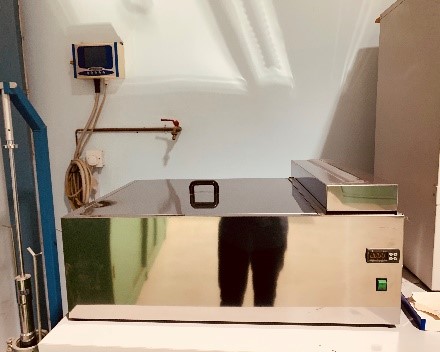 Laboratory water bath It is used to incubate samples in water at a constant temperature over a long period of time
|
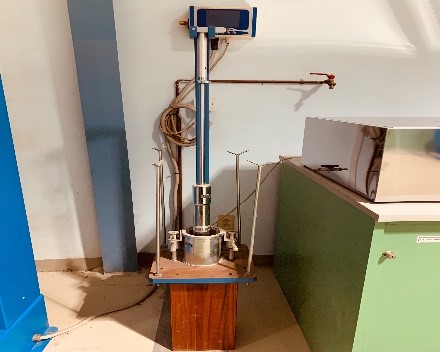 ELE Compactor It is used to compact specimen manually.
|
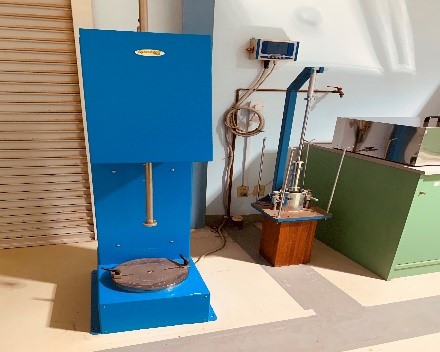 Matest automatic soil compactor It is used to compact specimen automatically.
|
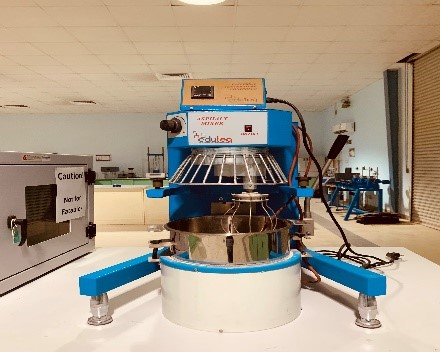 Asphalt Mixer It is used to mix Asphalt samples that can be used for mechanical tests.
|
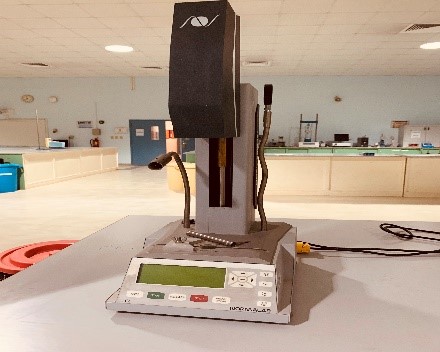 Automatic Bitumen penetrometer The Automatic Digital Bitumen Penetrometer is used for determination of the needle penetration according to Astm and EN standards. The penetration depth of the needle is determined with a pulse type electronic measuring system.
|
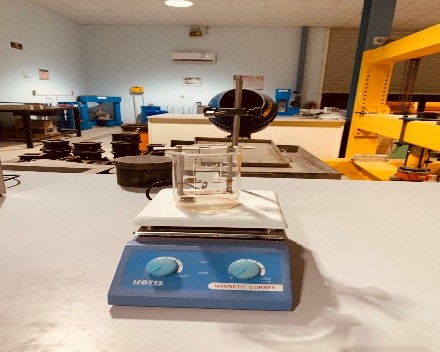 Magnetic Stirrer It is device that employs a rotating magnetic field to cause a stir bar (or flea) immersed in a liquid to spin very quickly, thus stirring it.
|
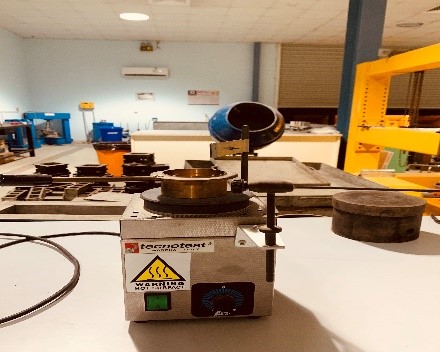 Flashpoint test apparatus It is used to find out flash point which is the lowest liquid temperature at which application of the test flame causes the vapors of the sample to ignite
|
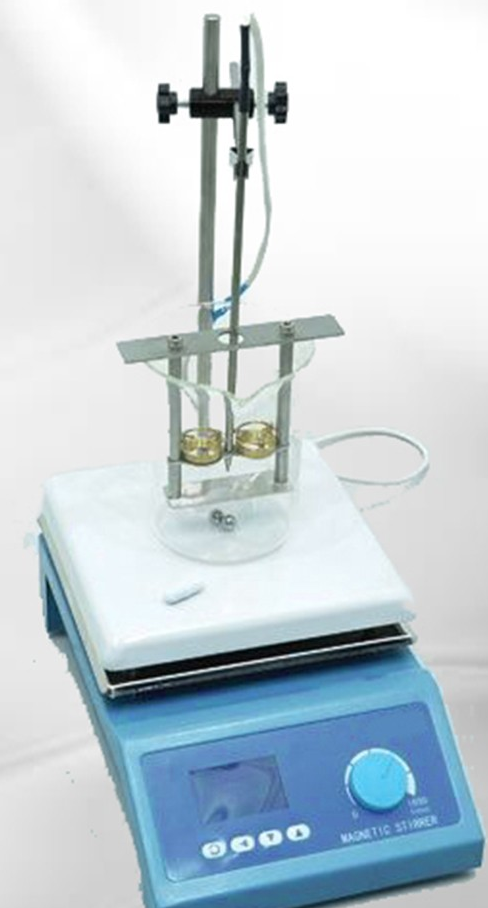
Ring and ball test set The Ring and Ball method of determining the softening point bituminous materials. The softening point is considered to the temperature of the fluid when the ball penetrates the specimens and touches the lower plate.
|
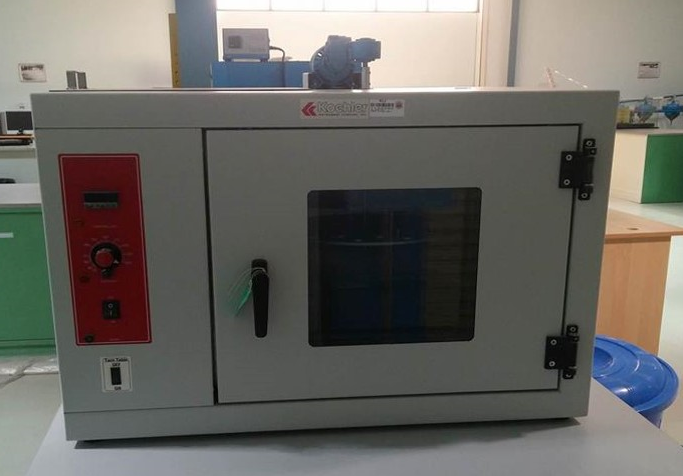 Asphalt Oven It provides an accurate, environmentally-friendly way to determine asphalt content of hot-mix asphalt in as little as 30-45 minutes.
|
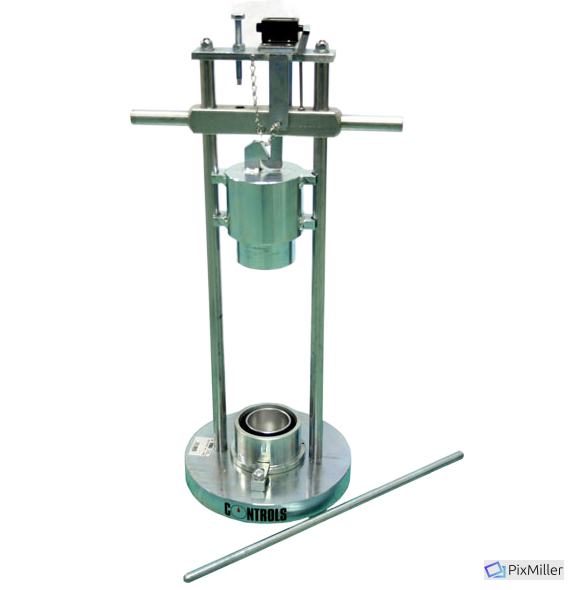
Aggregate Impact Value Test Apparatus Determination of impact value of the aggregates used in pavement construction and To assess their suitability in road layers (base course, surface course) construction on the basis of impact value.
|
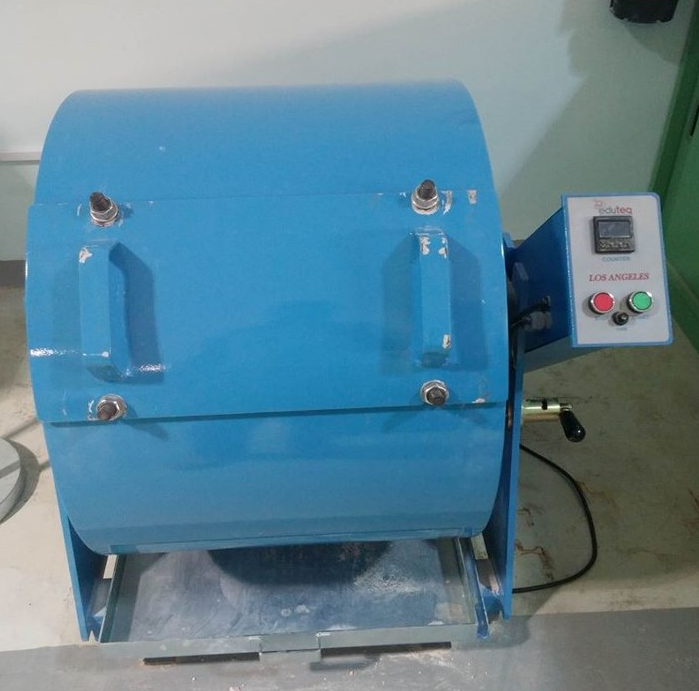 Los Angeles Abrasion Machine It is indicator of the relative quality of aggregates. It measures the degradation of standard grading of aggregates when subjected to abrasion and impact in a rotating steel drum with an abrasive charge of steel balls.
|
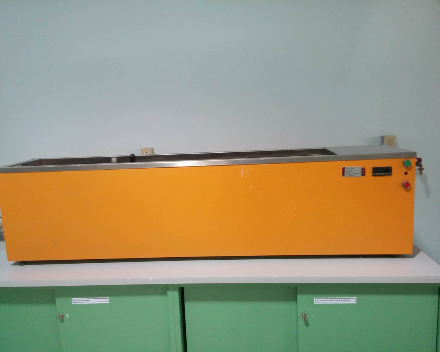 Ductility Testing machine It is used to determine the ductility of bituminous materials in a briquette mould by measuring the breaking elongation at a constant speed of 50 mm/min
|